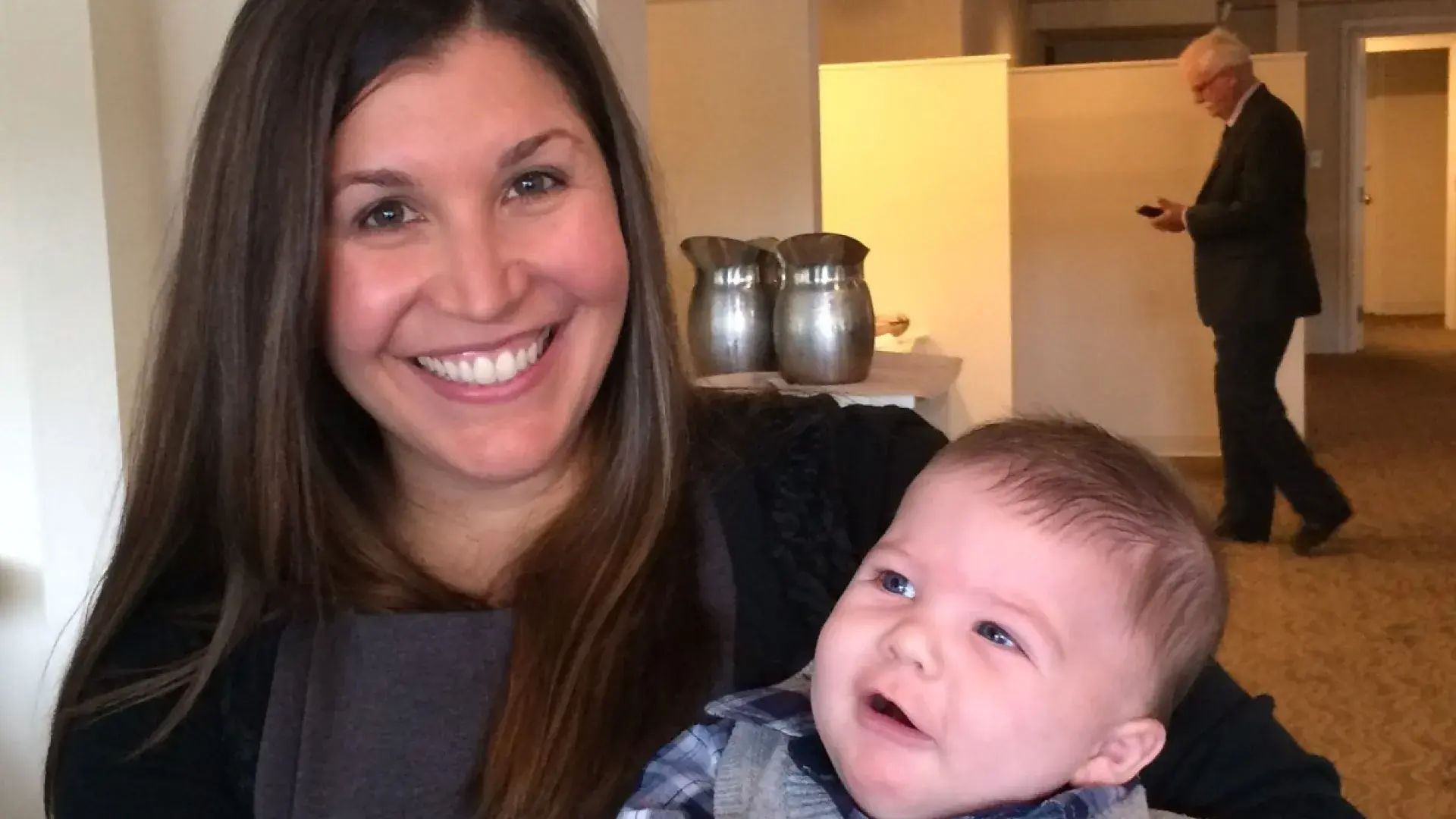
With funding from the Gerber Foundation, School of Nursing faculty Dr. Rebecca Hill looks to help other families whose children are afflicted with this common but underdiagnosed anomaly.
It had been almost five months since Dr. Rebecca Hill gave birth to a baby boy, and she couldn’t get an answer why her baby wasn’t gaining weight, was colicky, gassy, and aspirating when feeding on a bottle.
“I was at the pediatrician so often, saying ‘Something's not right here. My baby can't eat. He's not gaining weight. He's miserable. Therefore, we're all miserable,’” recalled Hill, an associate professor of nursing at the MGH Institute. “But the answer was always, ‘No, he's fine. He has a colicky disposition. He'll grow out of it.’”
Not satisfied, Hill went to a gastroenterologist, who told her the baby should be fine by the time he turned one. That didn’t sit well with the mother of two.
“I said, ‘I don't have that kind of time because I'm really struggling here.’ It just got completely brushed off,” she said. “The doctor put my baby on another medication for reflux that had severe side effects. I remember saying, ‘I am a very resilient person, but I'm reaching my breaking point.’ So, I was beyond angry.”
Hill had been dealing with the problem as a new mother, but she switched to her role as a family nurse practitioner to begin looking into possible solutions. When she researched her son’s symptoms, she would frequently see “tongue-tie” as a possible cause for all of them. Tongue-tie, formally known as ankyloglossia, is an affliction that affects about 8% of newborns. It can cause issues with breastfeeding when a piece of tissue under the tongue doesn't let the tongue rise enough – this can lead to undernourished and hungry babies. The more Hill thought about it, the more she was convinced tongue-tie was the issue – despite the fact her doctors had never mentioned or considered it.
Hill took her son to a pediatric dentist, who confirmed the diagnosis and fixed it that day; his symptoms were gone in 48 hours. While she was gratified her problem was solved, she resolved to do something so other mothers could avoid the same heartbreak. When her son was two years old, Hill began her PhD studies, committed to advancing the science on this under-recognized oral anomaly.
“As mother who was struggling, I was so angry that this was missed,” she said. “Gastrointestinal practice starts at the mouth, yet the doctors never looked in his mouth.”
Last fall, she applied for and was awarded a three-year, $30,000 grant from the Gerber Foundation to examine the issue. Only the second nurse to be funded by the foundation since its inception 20 years ago, Hill will be the first researcher to collect physiologic sucking data when babies are breastfeeding before and after treatment of tongue-tie.
“Solid data like what my study will produce is what people need to move the science and move clinical practice forward,” said Hill. “For whatever reason, this has been a controversial topic for years.”
The awareness of tongue-tie has ebbed and flowed for decades. Forty years ago, when infant formula was popular, breastfeeding rates plummeted as did awareness of the anomaly. But over the past two decades, the percentage of mothers who breastfeed has increased, thus resurfacing the myriad problems tongue-tie can create for the breastfeeding dyad.
Despite the issues, there isn’t conclusive data for the healthcare world to act on, largely because the best research – randomized control trials where some babies are treated, and others are not – can’t be performed.
“Ethically, we can't do that,” said Hill, who is also the associate dean for the nursing school’s prelicensure program. “We can't withhold treatment if a baby is not gaining weight and they can't eat. So, I don’t think robust randomized controlled trials will ever happen in this population.”
There’s never been a consensus among providers on whether it’s a condition that needs to be regularly screened and treated. Hill hopes to change that with her grant, “Exploring maternal and infant feeding symptoms for mothers breastfeeding infants with tongue-tie: A prospective cohort study.”
“My hope is that I gather enough data to get federal funding and bring this to a national level, where we're assessing babies all over the country and developing evidence-based practice guidelines because right now, it's like the Wild, Wild West,” said Hill. “Everyone's getting treated or no one's getting treated. There must be a middle ground – which babies need to have their tongue-tie fixed? My goal is to implement and influence policy on screening for tongue-tie. Every baby gets a hearing screening. Let's also look in their mouth.”
Eventually, Hill hopes the cost to correct tongue-tie can be covered by insurance. But first things first. Data will dictate future direction.
“We need to do better,” said Hill. “You know, people are struggling, and it's simple. It's a low-risk procedure. It's so controversial; it doesn’t have to be this way, and it’s just really unfortunate.”
Do you have a story the Office of Strategic Communications should know about? If so, email ihposc [at] mghihp.edu.
